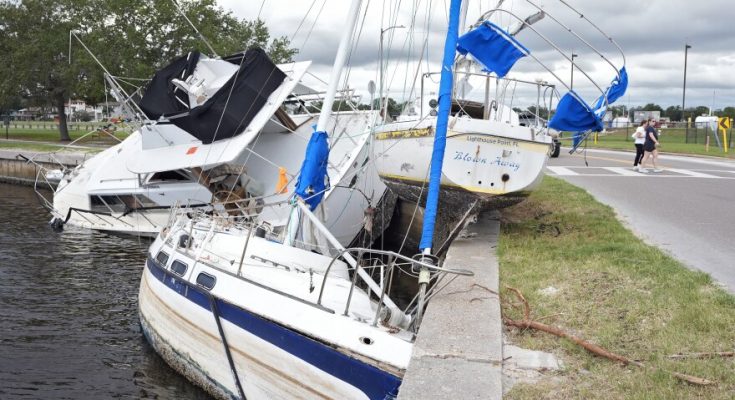BANDUNG, SEATIZENS – A critical situation unfolds in Florida, United States. The state government is currently conducting mass evacuations in preparation for Hurricane Milton. This storm is expected to strike on Wednesday, October 9, 2024, in the evening local time. Meteorologists predict that it will make landfall near Tampa, a city with over three million residents in its metropolitan area.
Most areas in Florida now operate under an official state of emergency. Local authorities have issued evacuation orders along the west coast. Disaster management officials have also released evacuation maps and designated sites.
Preparations and Airport Closures

Emergency shelters are available for residents who cannot evacuate. Airports along the storm’s path have announced closures, and long traffic queues have formed as thousands leave their homes for safer locations.
Florida Governor Ron DeSantis stated, “This could be the largest mobilization of the National Guard in Florida’s history ahead of the storm. A ‘monster’ is on its way.”
On Tuesday, officials downgraded Hurricane Milton to a Category 4 storm as it moved over the Yucatán Peninsula in Mexico, heading toward the Florida Gulf Coast.
Despite the urgent evacuation orders, Florida faces a pressing challenge: dwindling fuel supplies. As of Tuesday at 6:30 PM, about 7,912 gas pumps—roughly 17.4% of the total—had run out of fuel. The demand for gasoline spiked as residents rushed to escape danger. Patrick De Haan, an analyst at GasBuddy.com, noted, “This number will continue to increase rapidly. Milton’s path across Tampa Bay indicates a major issue for the primary fuel distribution network.”
Florida ranks as the third-largest gasoline consumer in the U.S. However, the state has no oil refineries, so it relies heavily on fuel imports via waterways. More than 17 million tons of petroleum and natural gas products pass through Tampa Bay each year.
/cloudfront-us-east-1.images.arcpublishing.com/pmn/C6MENNMUQVFK5D2GAWOOGHZ6AI.jpg)
In response to Hurricane Milton’s threat, Kinder Morgan closed its Central Florida Pipeline system and all fuel shipping terminals in Tampa. Nonetheless, the company hopes trucks can deliver fuel from distribution centers in Orlando, as long as wind speeds remain below 35 miles per hour.
CITGO Petroleum has also ceased its refining operations, while Buckeye Partners closed its terminals in Tampa.
Threat to Gasoline Supply
Tom Kloza, head of energy analysis at Oil Price Information Service, warned that Hurricane Milton could severely disrupt Florida’s gasoline supply. He believes the impact may even exceed that of Hurricane Andrew in 1992. Kloza commented, “It is hard to identify areas that might be more vulnerable to prolonged supply issues if a Category 3 storm or larger hits the infrastructure.”
Residents may have difficulty predicting when tankers or barges will reach Tampa Bay, with expectations now set for Sunday or Monday.
READ ALSO : Vice President Ma’ruf Amin conveys President Jokowi’s farewell greetings to ASEAN
Given these developments, authorities urge Florida residents to stay vigilant and monitor updates as the hurricane approaches.
(Firyal Trinidad)




